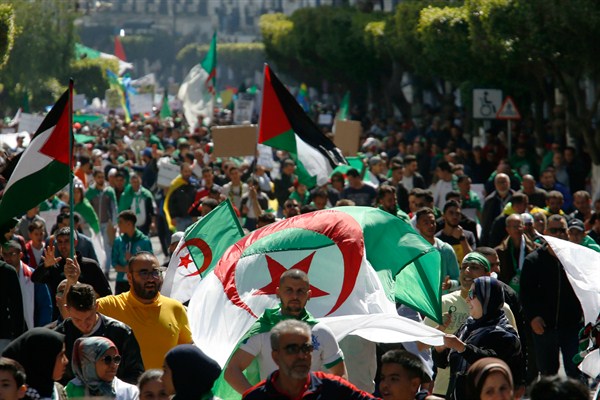The unexpected outburst of popular opposition to the regime long in power in Algeria has stimulated a renewed conversation about the dramatic tidal wave of change in the Middle East in 2011 known as the Arab Spring. The conventional view has been that cascading protests toppled autocrats in Tunisia, Egypt and Libya, but then fizzled out. Egypt returned to its previous strongman system, only one that was even worse than before. Libya, along with Yemen, got stuck in incomplete transitions that led to state failures and armed conflict, exacerbated by outside interference. And Syria is only now, eight years later, slowly wrapping up its brutal civil war, with the wrong side—the entrenched regime of President Bashar al-Assad—coming out on top.
But the surprise developments in Algeria in recent weeks have inspired many regional experts to take a fresh look. Is Algeria new evidence that the march continues for opening up political affairs in the Arab world? Or will angry crowds in the streets of Algiers meet the same fate of their Egyptian and Syrian counterparts—with the breakthroughs they facilitate only strengthening the hands of strongmen and their cliques? Already the momentum is stalling, with a clear impasse between demands for change by the public and offers of compromise by “le pouvoir,” what Algerians call the shadowy cabal of military and security leaders who have held power in their country for decades.
Algeria’s deep state initially offered the crowds only partial relief, delaying elections but avoiding bigger concessions. By April 2, however, the tide had turned, and Bouteflika submitted his resignation to the Constitutional Council. There is still uncertainty about the next steps, even though the succession process set out by the constitution is being observed, with the head of the Senate, Abdelkader Bensalah, taking over as interim president for 90 days until new elections can be organized.

